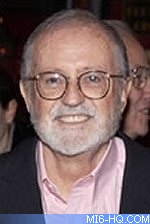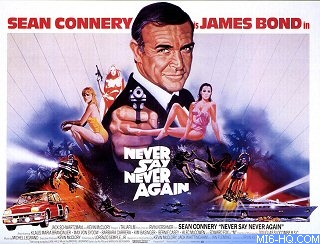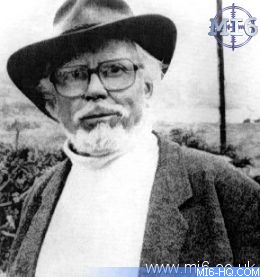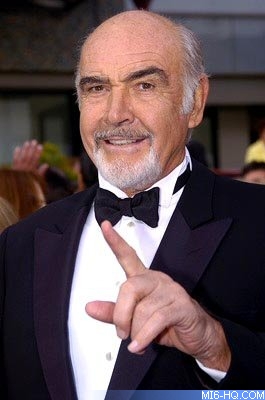 |
| |
Sony has been hankering after it's own James Bond
franchise since 1997, and now the company has finally
leveraged control after purchasing MGM. MI6 looks
back at the history of Sony, Kevin McClory and MGM..
|
|
Sony's Past Attempts To Secure 007
14th September 2004
On October 13th 1997, Sony Pictures Entertainment announced that
its Columbia Pictures studio had signed a long-term agreement
to produce a series of new films about 007 with the producer and
director Kevin McClory. McClory had produced two previous Bond
films, "Thunderball"
and (1983 remake) "Never Say Never Again".
MGM/UA studio contended that it already owned the rights to the
James Bond franchise. The company immediately sent out a harsh
warning that a huge legal battle was likely to ensue. "Kevin McClory's
claims of ownership of rights to James Bond have been disputed
for over 10 years," Frank G. Mancuso, then chairman of MGM, said
in a statement. "Any claim that he can create a James Bond franchise
is delusional.". Mancuso added, "We hope that Sony has not been
duped by Mr. McClory's deception," and he threatened the company
would "pursue all means to protect this valued franchise."
"The new James Bond films emphasize our commitment to create
motion picture franchises that serve as tentpoles for our release
schedule and create business opportunities throughout the Sony
family," Calley said in a statement.
|
Fast forward to November 18th 1997 (four weeks before the
release of "Tomorrow Never Dies"), and MGM hit back in an
attempt to stall Sony's plans. MGM filed a $25 million lawsuit
in federal court against Sony Pictures, charging that Sony's
efforts to mount a rival Bond film were due to "a disgruntled
former executive of (MGM's) United Artists Pictures." The
suit accused executive, John Calley, the former UA president
who was at the time Sony's motion picture head, of stealing
company secrets. "During his tenure at United Artists Pictures,
Calley acquired highly valuable proprietary information
about the optimal ways to develop and exploit the franchise
and bring it into the 21st Century," MGM said in its complaint.
Right: John Calley, who had experience
of working in both camps.
|
|
 |
"This case is about the specious efforts of a global media empire
and a disgruntled former executive of United Artists Pictures
Inc. to lay claim to the most successful and enduring motion picture
franchise in history," MGM's lawyers wrote in the complaint.
|
A month later the legal wrangling brought in the big names.
Sony's John Calley was reported to be courting Sean Connery
to star in the rival production, just like he did in 1983's
"Never Say Never Again", and the media reported Pierce Brosnan
had been spotted talking to people from the rival camp.
Angered by the continued press coverage Sony's attempt
was generating, an MGM spokesman said: "Regardless of who
Sony may claim to be in talks with, MGM has all rights to
James Bond and will block in court any attempts by Sony
to proceed with a James Bond film in any way."
Sony hit back in February 1998, claiming MGM had built
their franchise on McClory's Thunderball rights. In court
documents from the countersuit, Sony claimed that Bond and
the Bond movies are all based on the sort of action originally
written in the story line for Thunderball. Because of that,
they say McClory is the co-author of the cinematic Bond.
|
|

Above: "Never Say Never Again"
quad poster.
Never Say Never Again DVD
 UK
- MI6 Price: £5.97
UK
- MI6 Price: £5.97
 USA
- MI6 Price: $13.01
USA
- MI6 Price: $13.01
|
Sony further claimed that MGM and Danjaq LLC owed McClory fees for
all the Bond movies they have produced because he was the co-author
of the cinematic Bond. And they wanted a full accounting of the
profits and losses of those movies, which was estimated to have
generated $3 billion.
 |
|
According to the documents submitted to the court, Fleming
worked with McClory and scriptwriter Jack Whittingham through
1959 and 1960, developing 10 treatments and scripts that
weren't based on any of the existing Bond novels. The joint
script efforts, ultimately titled "Thunderball", were intended
to become the original James Bond film in 1960.
"As a consequence of his joint authorship, McClory has
at all times been at least a co-owner of copyright in and
to the McClory scripts and all their elements, including
the James Bond character as delineated therein," said Sony
in the counterclaims. "Consequently, McClory (and now Sony)
may freely exploit the McClory scripts."
Left: Kevin McClory
|
MGM attorney, Pierce O'Donnell called Sony's
assertions "preposterous" and likened McClory to the "Rip Van
Winkle of copyright laws. He has been sleeping on his putative
rights for over 20 years."
MGM and Danjaq released a brief response to the new Sony claims
of ownership. "The defendant's response confirms our strongly
held belief that Sony was delusional in asserting that it can
launch a new series of James Bond films," an MGM statement said.
"Expanding radically upon Kevin McClory's time-worn assertion
of his rights to make James Bond movies based on Thunderball,
Sony now makes completely unfounded new claims."
A federal judge ruled in favor of MGM on July 30th 1998, issuing
a preliminary injunction ordering Sony to halt work on its own
007 series. The order prohibitted Sony from developing the film
until MGM's copyright infringement lawsuit was resolved. MGM attorney
Pierce O'Donnell said "We're going to prove Sony is a corporate
predator, we're going to seek millions upon millions of dollars
in damages."
U.S. District Judge Edward Rafeedie wrote, "The plaintiffs have
demonstrated that by operation of law, they now own the U.S. film
and television rights for all of the (Ian) Fleming novels which
feature the James Bond character". Sony attorney David Steuber
replied with "we believe we do have rights to make James Bond
movies and we believe the law and the facts support those rights.
It's clear that (Rafeedie) did not appear to agree with our position
and, with all due respect, we believe he's misread the cases and
is wrong.'' Steuber noted that in his opinion, Rafeedie said MGM
had not shown evidence to justify applying the injunction worldwide,
raising the possibility that work could continue outside the United
States. Rafeedie wrote that MGM and it's co-plaintiff, Danjaq
LLC, could apply separately for a worldwide injunction if they
felt it was needed.
A few months later on September 18th 1998, Sony scored a minor
victory in its pursuit of a Bond franchise when the trial judge
agreed to postpone the December 15th appeal date. The delay was
to give the appellate court an opportunity to rule on Sony's appeal
of the preliminary injunction won by MGM, which barred Sony from
developing a Bond series while the case is pending.
Sony lawyer David Steuber stressed that Rafeedie's decision was
not a routine order: "I think this is a significant step because
it's a recognition that the validity of MGM's position is not
clear cut and there is a legitimate dispute about controlling
questions of law." MGM, however, scoffed at the significance of
the order. Spokesman Craig Parsons said, "This doesn't change
the merits of the case one iota. We are as confident about winning
in January or February as we are about winning in December."
|
Sean Connery hit the headlines a month later on October
24th 1998 with reports that he would be returning to his
famous 007 role for one (more) final outing in "Doomsday
2000" - based on McClory's "Thunderball" rights.
Filming was slated for January 1999 in England, Australia
and the Bahamas, with a release date penciled in for a head
to head battle with Pierce Brosnan's "The World Is Not Enough".
Sony had reportedly offered this project to Dean Devlin
and Roland Emmerich, the creative duo responsible for "Independence
Day" and "Godzilla".
The prospect of peace arose in March 1999, when Sony switched
it's attention to creating a new "Spider-Man" franchise.
The snagging point was that MGM owned partial rights and
Sony could be issued a similar cease and desist order, or
hauled through the courts at a later date if it went ahead
without addressing them.
Right: Sir Sean Connery was tipped to return
for an eigth outing as James Bond in the unofficial "Doomsday
2000"
|
|
 |
On March 30th 1999, just months before the case was to go to
trial, Sony gave up all claims to the Bond character in a settlement
with MGM. In return MGM relinquished all its rights to "Spider-Man"
so that Sony could proceed. "Essentially," said Sony attorney
David W. Steuber, "we have given up the universal right to make
a James Bond picture."
In addition to laying aside its Bond ambition, Sony forked out
over $5 million of the damages MGM was seeking. For its part,
MGM agreed to pay Sony $10 million to shore up its exclusive international
rights to the James Bond franchise and for certain specific rights
to the 1967 Bond spoof "Casino Royale".
McClory, as a party to the lawsuits, decided to press ahead on
his own, even though he claimed to have received death threats
on the Internet. His suit was dismissed by U.S. District Court
Judge Edward Rafeedie in March of 2000, and that dismissal was
upheld by the appeals court on August 28th 2001. A federal appeals
court dismissed the lawsuit by producer Kevin McClory who sought
a share of profits from MGM's franchise. The ruling from a three-judge
panel of the 9th U.S. Circuit Court of Appeals upheld a lower-court
ruling from 2000 that also dismissed the lawsuit, on the grounds
that McClory waited too long to assert rights to the Bond character
- more than 35 years.
Having been cut loose from Sony's plans for a rival series, McClory
waited until 2002 to make his next move, when
a mysterious Dutchman offered the rights to the James Bond 007
franchise for sale to the highest bidder in the trade paper Screen
International - "Auction of James Bond 007 rights - unless
sold beforehand. Included are film and literary rights to various
James Bond outlines, treatments and screenplays, co-authored by
Ian Fleming, Kevin McClory, Jack Whittingham, Len Deighton and
Sean Connery".
Katherine McCormack from Eon Productions said "It's obviously
a very, very sensitive situation. It's potentially going to explode
into a legal situation", believing McClory was the man behind
the advertisement. Eon, and then struggling movie studio MGM,
countered with claiming the exclusive rights to: "The James Bond
character as depicted in the Bond films". The situation died off
quickly though, with no further advertisements published.
Now with Sony taking over the James
Bond franchise with its MGM buyout, McClory looks like he
has been left out in the cold once and for all. But "Never Say
Never Again" though, as any movie studio wishing to spark a rival
series could court the producer one more time...
Related Articles
 MGM Accept Sony Buyout Deal
MGM Accept Sony Buyout Deal
 "Dr.
No" Production Notes
"Dr.
No" Production Notes
 "Thunderball"
Production Notes
"Thunderball"
Production Notes
 "Octopussy
" Production Notes
"Octopussy
" Production Notes
 Another
Legal Battle On The Cards
Another
Legal Battle On The Cards